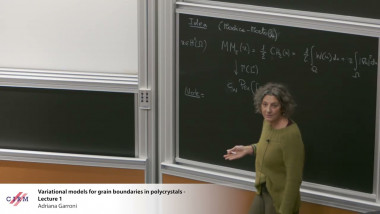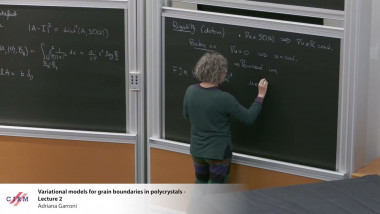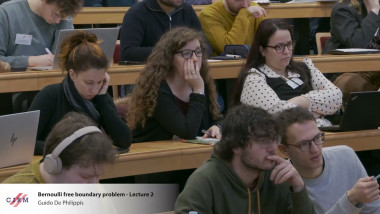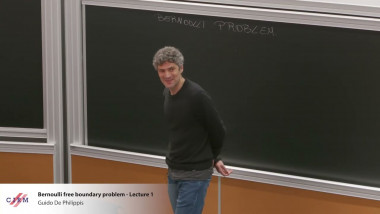Apparaît dans la collection : Advances in computational statistical physics / Perspectives en physique statistique computationnelle
In this talk we discuss the convergence to equilibrium in conservative-dissipative ODE-systems, kinetic relaxation models (of BGK-type), and Fokker-Planck equation. This will include symmetric, non-symmetric and hypocoercive evolution equations. A main focus will be on deriving sharp decay rates.
We shall start with hypocoercivity in ODE systems, with the ”hypocoercivity index” characterizing its structural complexity.
BGK equations are kinetic transport equations with a relaxation operator that drives the phase space distribution towards the spatially local equilibrium, a Gaussian with the same macroscopic parameters. Due to the absence of dissipation w.r.t. the spatial direction, convergence to the global equilibrium is only possible thanks to the transport term that mixes various positions. Hence, such models are hypocoercive.
We shall prove exponential convergence towards the equilibrium with explicit rates for several linear, space periodic BGK-models in dimension 1 and 2. Their BGK-operators differ by the number of conserved macroscopic quantities (like mass, momentum, energy), and hence their hypocoercivity index. Our discussion includes also discrete velocity models, and the local exponential stability of a nonlinear BGK-model.
The third part of the talk is concerned with the entropy method for (non)symmetric Fokker-Planck equations, which is a powerful tool to analyze the rate of convergence to the equilibrium (in relative entropy and hence in L1). The essence of the method is to first derive a differential inequality between the first and second time derivative of the relative entropy, and then between the entropy dissipation and the entropy. For hypocoercive Fokker-Planck equations, i.e. degenerate parabolic equations (with drift terms that are linear in the spatial variable) we modify the classical entropy method by introducing an auxiliary functional (of entropy dissipation type) to prove exponential decay of the solution towards the steady state in relative entropy. The obtained rate is indeed sharp (both for the logarithmic and quadratic entropy). Finally, we extend the method to the kinetic Fokker-Planck equation (with nonquadratic potential).
![[1247] Dérivation de l'équation de Boltzmann en temps long à partir d'une dynamique de sphères dures](/media/cache/video_light/uploads/video/SeminaireBourbaki.png)














